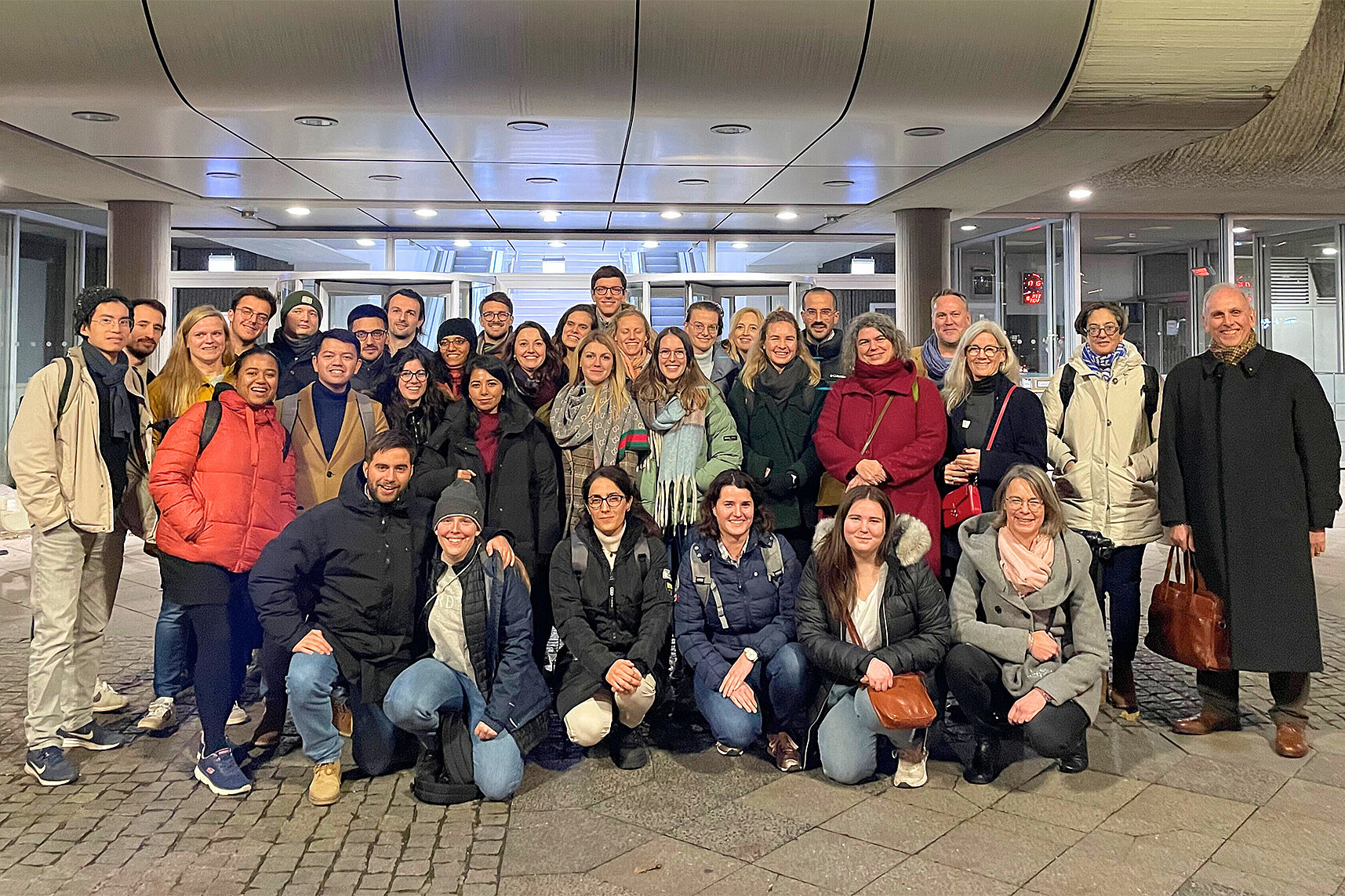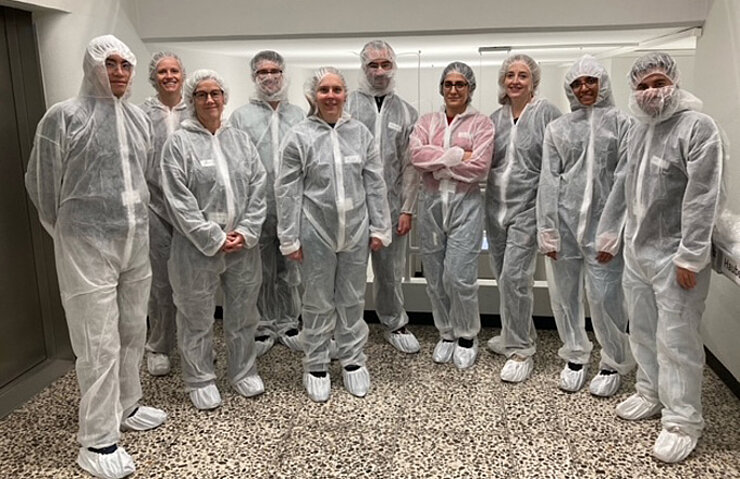The ENLIGHT-TEN+ network (European Network Linking Informatics and Genomics of Helper T cells in Tissues) educates 15 young scientists in the field of immunology at academic and non-academic institutions in ten European countries. Prof. Jochen Hühn, head of the "Experimental Immunology" department at the Helmholtz Centre for Infection Research (HZI), coordinates the consortium. The organization EATRIS (European Infrastructures for Translational Medicine) supported the organization of the ENLIGHT-TEN+ Winter School 2023, which was attended by the 15 ENLIGHT-TEN+ doctoral students and 13 external participants. Through scientific presentations and interactive exercises, they learned about important aspects of drug development and approval.

Next generation scientists deepen their knowledge of translational medicine and drug production

In the board game "From test tubes to tablets", developed by Keith Williams, the participants gained a comprehensive overview of the lengthy process from the discovery of a drug candidate to the final drug. The focus was on successfully bringing a fictitious therapeutic to the market, taking into account costs, risks and delays. In his lecture, Prof Robert Harris, Professor of Immunotherapy in Neurological Diseases at the Karolinska Institute in Stockholm, presented how biomedical research has influenced the clinical treatment of multiple sclerosis in Sweden. Dr Sarah Weschke, Patient and Stakeholder Engagement Officer at Charité's Berlin Institute of Health, also explained in her presentation that the early inclusion of patient experiences in the research process increases the relevance of studies and promotes the translation of results into clinical practice.
Dr Thomas Steger-Hartmann provided the researchers with an overview of the studies and safety checkpoints required for the further development of a new drug candidate. The Head of Investigative Toxicology at BAYER illustrated the complex process of drug development from in silico and in vitro studies to clinical trials in human subjects.
As part of career orientation activities, the young scientists gained insights into various career opportunities in academic research and industry.
Further Information
![Dr Charlotte Schwenner [Translate to English:] Charlotte Schwenner](/fileadmin/_processed_/6/9/csm_Charlotte_Schwenner_f5c416d9d0.jpg)